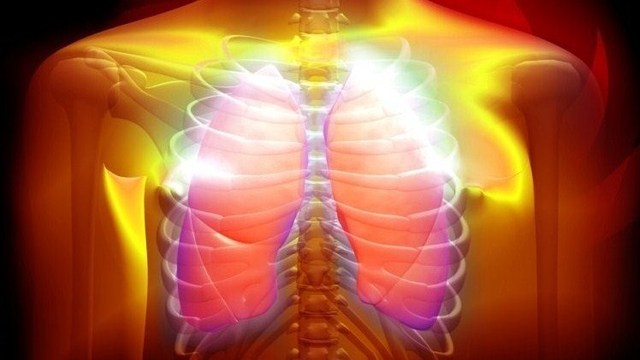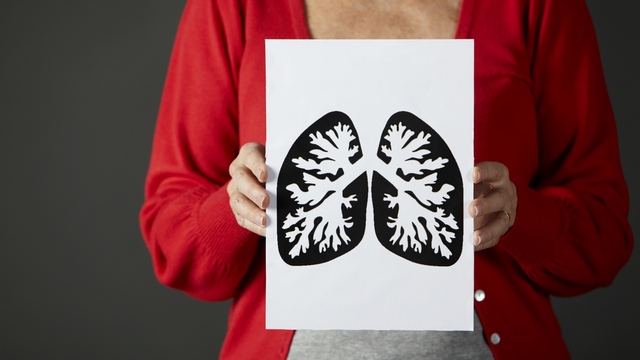The postulated medical benefits of vitamin D continue unabated. Every week, there is a new study which shows that vitamin D can cure an illness.
For some time researchers have been postulating that people who smoke and have exacerbations of their COPD may be vitamin D deficient. Some people with COPD have been found to have a deficiency of vitamin D but it is not known if this is due to a poor diet or a result of the COPD.
Thus, vitamin D supplementation has been proposed to treat patients who have COPD and other related manifestations.
Some health care workers have empirically been treating their COPD patients with vitamin D without first determining if they have a deficiency. The belief that vitamin D is an all-purpose supplement with far-reaching medical benefits has made it one of the most widely consumed substances.
But does it work?
Now there is a study which debunks that myth. In the latest study from Belgium, monthly doses of 1000,000 IU ( 3,200 IU daily) had almost no effect in reducing or preventing the exacerbations of COPD. (1)
The researchers measured levels of vitamin D in blood and observed that Individuals who had normal levels of vitamin D had no benefit.
The benefit of vitamin D was only seen in patients who had a deficiency. In COPD individuals without a deficiency of vitamin D, there was no improvement in quality of life or symptoms.
Based on this study, the recommendations included that clinicians first assess vitamin D levels in blood. The supplement is only of benefit in patients with a known deficiency. (2)
It also has to be understood that taking large doses of vitamin D can lead to hypercalcemia. For most people, the upper limit of tolerability is about 4,000 IU per day, but even this dose may be too high for elderly and sick individuals.
While vitamin D may be of some benefit in improving chronic airway disease, finding the right patient and right dose is vital.
For the moment, vitamin D is useful for the treatment of osteoporosis in postmenopausal women. Its role in the treatment of COPD is still debated.
For the consumer with COPD, it is important to eat a diet with adequate amounts of vitamin D and to discontinue smoking. Reliance on any one supplement for good health is unrealistic.
Sources:
Lehouck A, et al "High doses of vitamin D to reduce exacerbations in chronic obstructive pulmonary disease: A randomized trial" Ann Intern Med. 2012 Jan 17;156(2):105-14.
Abstract: http://www.ncbi.nlm.nih.gov/pubmed?term=Lehouck%20A%2C%20Mathieu%20C%2C%20Carremans%20C%2C%20Baeke%20F%2C%20Verhaegen%20J%2C%20Van%20Eldere%20J%2C%20Decallonne%20B%2C%20Bouillon%20R%2C%20Decramer%20M%2C%20Janssens%20W.
Janssens W. Vitamin D deficiency and chronic obstructive pulmonary disease: a vicious circle. Vitam Horm. 2011;86:379-99.
Abstract: http://www.ncbi.nlm.nih.gov/pubmed/21419281
Reviewed January 24, 2012
by Michele Blacksberg RN
Edited by Jessica Obert






Add a Comment4 Comments
personally, having treated patients with COPD, i find that the disease is progressive irrespective of treatment. AM a firm believer in fewer drugs and better nutrition.
SB
January 25, 2012 - 5:23amThis Comment
The paper actually says that there is an effect on COPD for the lowest 16% of the cohort, it is in the discussion. This is to be expected as it is not that vitamin d is good for you but that a shortage is bad.
January 25, 2012 - 1:05amThis Comment
thanks for the information. SB
January 24, 2012 - 6:03pmThis Comment
The uper limit limit of tolerability is much higher than 4,000 IU/day. Only if someone suffers from certain rare illnesses that cause hypersensitivity to vitamind D are doses below 10,000 IU/day unsafe. But in those cases, patients are also instructed to limit exposure to the Sun. As pointed out here:
http://www.ajcn.org/content/85/1/6.full
doses up to 10,000 IU/day are safe, and even in cases of illnesses causing vitamin D hypersensitivity, doses below 10,000 IU/day are not likely to cause problems (although taking supplements without supervision is then not advised).
The precise way vitamin D overdose causes hypercalcemia in healthy people is not well understood, see here for details:
http://www.ajcn.org/content/88/2/582S.full
What is clear, however, is that the calcidiol level must be near 750 nmol/l before problems start to occur. This is way above 250 nmol/l which is considered to be the maximum value that can occur naturally, and which is typical for an intake of 10,000 IU/day.
January 24, 2012 - 5:14pmThis Comment